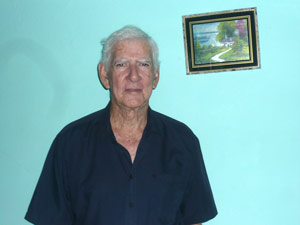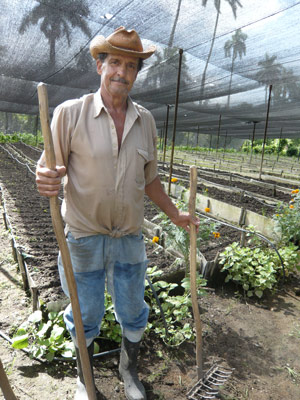NOW is the Time to Struggle Against US Attacks on Cuba & Venezuela
Published on October, 44 2019Horse-drawn carts, like this one in Sancti Spiritus, are used as minibuses for fixed route public transportation in towns and smaller cities in Cuba. Alternate transportation forms like this are being used more because the siege warfare the US is employing against Cuba is causing fuel and food shortages. All photos by Leni Villagomez Reeves, Fresno Branch.
By Leni Villagomez Reeves
Co-chair, Cuba and the Bolivarian Alliance Issue Committee
We are now in a critical period, as the US government increases its attacks on Cuba and Venezuela. We are strengthening and expanding the WILPF Cuba and the Bolivarian Alliance Issue Committee. We hope that WILPFers from across the country will want to work together with us on a national level to change US government policies that are intended to cause suffering.
Contact us! Be part of our monthly conference call meetings, to help plan activities and actions that WILPFers can join in across the country! We can be more informed and influential by working together. I can be reached at: lenivreeves@gmail.com
US Policies Aim to Promote Suffering in Cuba & Venezuela
 Photo: Gilberto has central blindness caused by vitamin deficiency that occurred during the Special Period in the 1990s when Cuba lost eastern bloc trading partners and the US intensified its blockade. He can manage somewhat with peripheral vision and a huge magnifying glass, but he can no longer read, which used to be his great pleasure.
Photo: Gilberto has central blindness caused by vitamin deficiency that occurred during the Special Period in the 1990s when Cuba lost eastern bloc trading partners and the US intensified its blockade. He can manage somewhat with peripheral vision and a huge magnifying glass, but he can no longer read, which used to be his great pleasure.
Both Cuba and Venezuela are now targets of increasing US “sanctions.” In the past year, the United States Government has greatly increased its almost 60-year-old blockade against Cuba. It has imposed additional obstacles to foreign trade and attempted to stop banking/financial relations between Cuba and the rest of the world. It has seized Venezuelan assets in patently illegal actions, and blocked food shipments.
Strengthening the financial blockade cuts off humanitarian efforts as well as normal commerce. For example, a Swiss NGO, MediCuba, which provides medical assistance for patients with cancer and HIV, has been notified by Swiss bank PostFinance that they can no longer do transactions for the NGO due to the US sanctions. “PostFinance isn’t subject to US law, but it participates in global payment transactions and therefore depends on a network of correspondent banks and access to dollar operations,” the bank said. It was one of the last financial institutions still transacting with Cuba.
The US is also creating an energy crisis in Cuba by applying measures with greater aggressiveness and extraterritoriality to prevent the supply of fuel to Cuba from different markets in South America, Europe, and North Africa. These actions include direct threats, persecution of fuel transportation companies, measures against shipping companies and insurance companies, and pressure against governments where those ships are registered.
Beginning in April 2019, the US has applied “sanctions” to two companies – 34 ships – that transport Venezuelan oil to Cuba, fining these companies for transporting oil from one sovereign nation to another. If they wish to continue doing business with the US, which is obviously a dominant global economic power, they have to pay the fines and/or stop doing business with Venezuela and Cuba. As a result, these tanker operators now ask 12 million dollars – triple the previous price – for transporting Venezuelan crude to other countries. This has produced an oil shortage in Cuba, as well as causing economic problems in Venezuela.
How Cuba Is Managing the Crisis
 Photo: Organopónicos are urban agriculture sites which produce vegetables for local consumption in raised beds with hand labor only and without chemicals. This is done everywhere, even Havana.
Photo: Organopónicos are urban agriculture sites which produce vegetables for local consumption in raised beds with hand labor only and without chemicals. This is done everywhere, even Havana.
In Cuba, they have had to adopt temporary emergency measures. Cubans are determined to keep the schools open and the hospitals and medical facilities running normally. Until now, no electricity blackouts have occurred. The most obvious impact in people’s daily lives has been a severe reduction in public transportation due to lack of fuel. (Few Cubans own private cars.) Bus schedules are cut way back, both in the cities and between provinces.
Small-scale production of foodstuffs locally is being increased. People are saving fuel through the increased use of horses and oxen for transportation, hauling, and agriculture. Cuba has been engaging in significant petroleum-free agriculture and transport since the 1990s when they faced a worse crisis with the collapse of the eastern bloc and the intensification of the blockade.
During the 1990s, known in Cuba as the “Special Period,” there were fuel shortages that caused prolonged blackouts as well as food shortages. This led to serious hunger; adults lost an average of 20 lbs, although children were protected as much as possible. Vitamin deficiencies led to permanent effects, including optic neuropathy, causing central blindness. This was a direct result of the US blockade. Then and now, such measures not only ensure that US companies do not do business in Cuba, but they do everything to try to prevent enterprises in other countries from doing business with Cuba, too. This extra-territoriality is why it is a blockade and not an embargo.
The most recent pretext for these extreme measures is to blame Cuba for the failed plan to forcibly overthrow the Government of the Bolivarian Republic of Venezuela. After the failure of the attempted coup in Venezuela, the US is doing its worst to impose economic and social chaos. Its goal is to create a crisis in Venezuela that will force out elected president Nicolás Maduro and install US-backed coup leader Juan Guaidó.
Sanctions and seizures of shipping that transports Venezuelan oil attempt to disrupt the economy. In a direct attack on food for people, in September the US imposed sanctions on suppliers of the food for the Comités Locales de Abastecimiento y Producción (CLAP). The CLAP program is organized at a community level to receive and distribute staples subsidized by the government; there are about 32,500 local committees in Venezuela.
Of course, trying to cut off food to a civilian population is a particularly cruel form of siege warfare that is against international law. It is critical that we try to stop our government from taking these cruel actions. The US government is working hard to create suffering in Cuba and Venezuela. It is our responsibility to try to change this. Silence is complicity.



